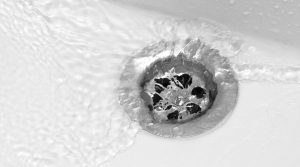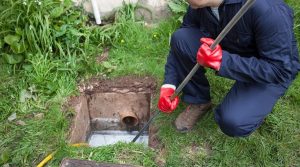A refreshing shower can quickly turn unpleasant when foul odors emerge. Understanding the root causes of these smells is essential for maintaining a clean and inviting bathroom environment.
Key Takeaways:
- Identify the Odor Source: Determine the specific smell to pinpoint its origin.
- Common Causes: Issues like a dry P-trap, biofilm buildup, clogged drains, or leaky pipes often lead to shower odors.
- Effective Solutions: Regular cleaning, proper maintenance, and prompt repairs can prevent and eliminate unpleasant smells.
Identifying the Source of the Odor
The first step in addressing shower odors is to identify the specific smell, as different odors can indicate various underlying issues.
1. Dry or Dirty P-Trap
A common culprit behind sewer-like smells is a malfunctioning P-trap.
What is a P-Trap and How Does It Cause Odors?
The P-trap is a U-shaped pipe beneath the shower drain designed to hold water, creating a seal that prevents sewer gases from entering your home. If this trap dries out or becomes clogged with debris, odors can escape into your bathroom.
How to Clean and Maintain the P-Trap
- Regular Flushing: Pour water down the drain periodically to ensure the P-trap retains water.
- Cleaning Debris: Remove the drain cover and use a brush or pipe cleaner to eliminate hair and soap scum buildup.
- Preventive Measures: Install a drain screen to catch debris and reduce the risk of clogs.
2. Biofilm Accumulation
A musty or unpleasant odor may result from biofilm—a slimy layer of bacteria and organic matter.
Understanding Biofilm and Its Effects
Biofilm forms when bacteria adhere to surfaces in moist environments, feeding on soap residue, shampoos, and organic debris. This buildup not only emits foul odors but can also impede water flow.
Removing Biofilm from Your Shower
- Vinegar and Baking Soda Solution: Pour a mixture of equal parts vinegar and baking soda down the drain, let it sit for 15 minutes, then flush with hot water.
- Enzymatic Cleaners: Use enzyme-based drain cleaners that break down organic matter without harming your plumbing.
- Regular Maintenance: Clean your shower and drains weekly to prevent biofilm formation.
3. Clogged Drains
Slow-draining water accompanied by a foul smell often indicates a clog.
Common Causes of Shower Drain Clogs
- Hair: Accumulates and binds with soap, creating blockages.
- Soap Scum: Hard water minerals combine with soap, forming residue that narrows pipes.
- Foreign Objects: Small items accidentally washed down the drain can obstruct water flow.
Effective Methods to Unclog Drains
- Plunger: Create a seal over the drain and plunge vigorously to dislodge the clog.
- Drain Snake: Insert into the drain to break up or retrieve the blockage.
- Preventive Tips: Use drain covers to catch hair and avoid disposing of greasy substances down the drain.
4. Leaky Pipes
A persistent smell of mold or mildew may be due to leaking pipes.
How Leaks Contribute to Odors
Leaks create damp environments conducive to mold and mildew growth, which emit musty odors and can pose health risks.
Detecting and Fixing Leaky Pipes
- Visual Inspection: Look for water stains on ceilings or walls adjacent to the shower.
- Monitor Water Bills: An unexplained increase may indicate a hidden leak.
- Professional Assistance: Engage a licensed plumber to locate and repair leaks promptly.
Frequently Asked Questions
Q1: Why does my shower drain smell like rotten eggs?
A rotten egg smell typically indicates the presence of hydrogen sulfide gas, often due to bacterial growth in the drain, water heater, or contaminated water source. Cleaning the drain and flushing the water heater may resolve the issue. If the problem persists, consult a professional to inspect your water supply.
Q2: Can I use chemical drain cleaners to eliminate odors?
While chemical drain cleaners can remove clogs, they may damage pipes and are not always effective against odors caused by biofilm or sewer gases. Natural cleaning methods or enzymatic cleaners are safer alternatives.
Q3: How can I prevent future shower drain odors?
- Regular Cleaning: Maintain a routine of cleaning your shower and drains to prevent buildup.
- Install Drain Covers: These catch hair and debris, reducing the risk of clogs.
- Ensure Proper Ventilation: Use exhaust fans or open windows to reduce humidity and inhibit mold growth.
Q4: When should I call a professional plumber?
If odors persist despite regular cleaning and maintenance, or if you suspect a serious issue like a sewer leak or extensive mold growth, it’s advisable to contact a licensed plumber for a thorough inspection and remediation.
Maintaining a fresh-smelling shower involves regular upkeep and prompt attention to potential issues. By understanding common causes of odors and implementing preventive measures, you can ensure your bathroom remains a pleasant and hygienic space







